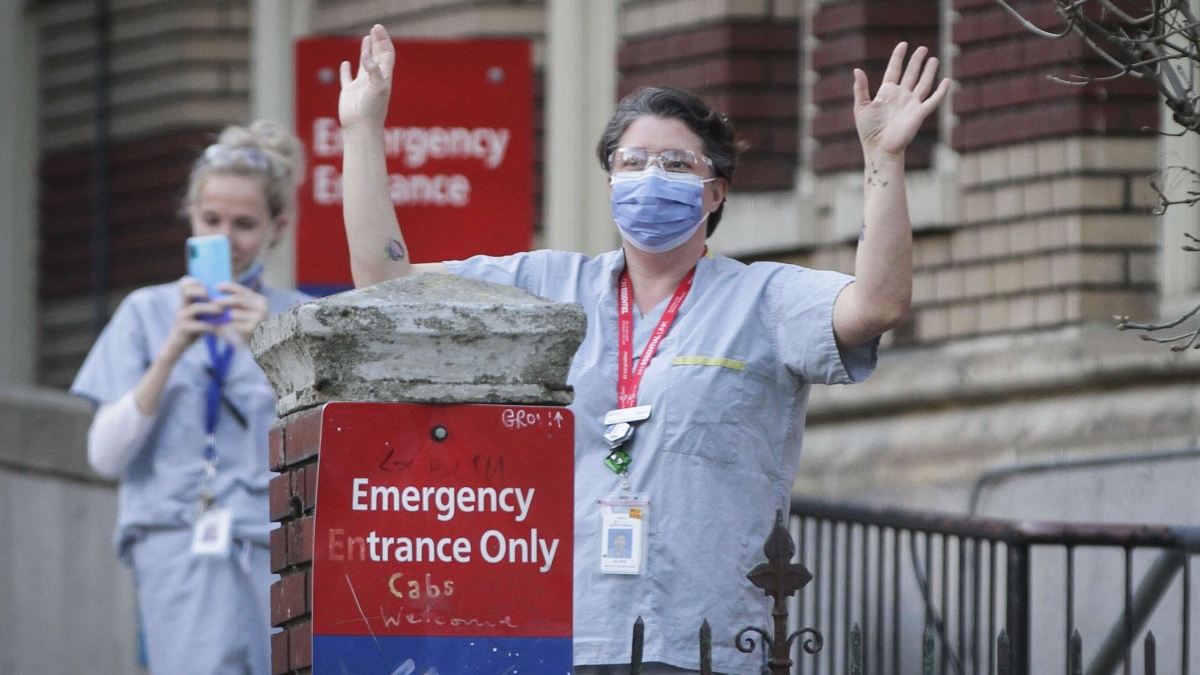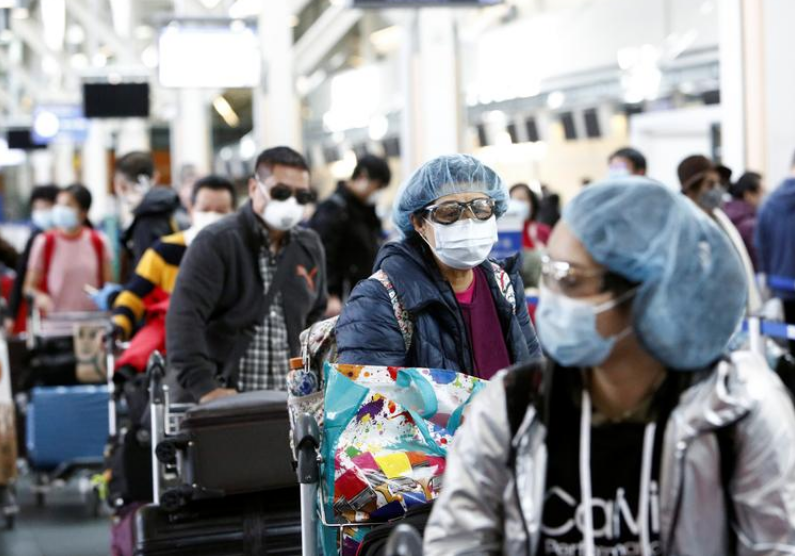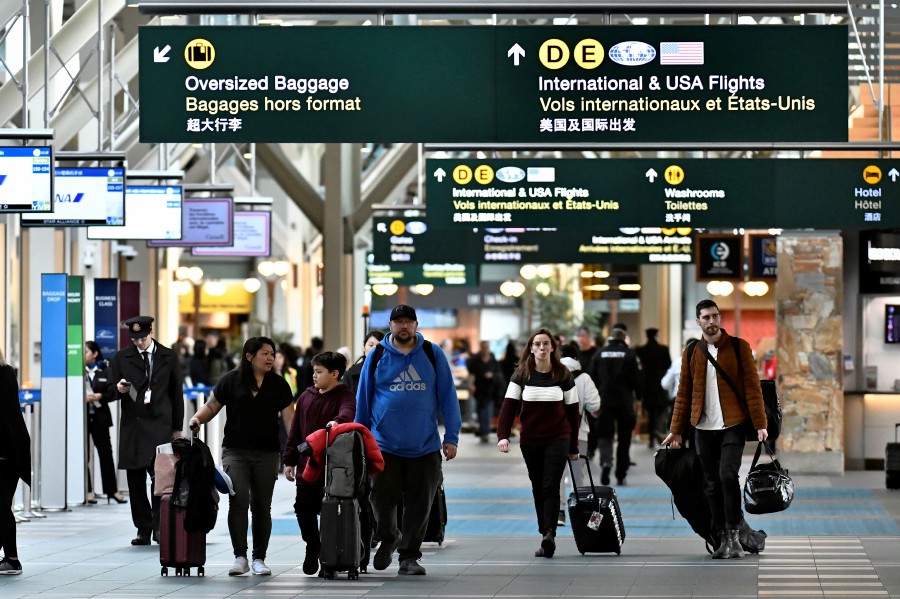
Healthcare workers acknowledge applause from people outside St. Paul's Hospital in Vancouver on Monday. /Xinhua
Healthcare workers acknowledge applause from people outside St. Paul's Hospital in Vancouver on Monday. /Xinhua
Richmond in British Columbia, Canada, is just 30 km (19 miles) from the U.S. border – but its pandemic performance is thoroughly different. The city's coronavirus case rate is roughly a quarter that of Canada as a whole, and just 5 percent that of the U.S., according to a report from South China Morning Post (SCMP).
The remarkable Canadian community is the only city outside Asia that has a majority ethnic Chinese population, accounting for 53 percent of its population, according to the 2016 census. The number in San Francisco, widely considered as the most Chinese city in the U.S., is just 21 percent.
As the U.S. keeps grappling with notions about the "China virus" and the value of masks and other measures in the battle against the coronavirus, Richmond's excellent performance in the pandemic fight is worth being noticed.
The coronavirus infection rate in the U.S. is about 2,000 per 100,000 population, the rate in Canada as a whole is 370, and in the Canadian province of British Columbia, it is about 150.
As of September 16, the infection rate in Richmond was just 97 per 100,000 (based on the 2019 BC Stats population estimate of 225,000 people), about a quarter of the Canadian rate, and less than one-20th of the U.S. rate.

People wearing face masks and goggles wait to check in for an international flight at the Vancouver International Airport in Richmond, British Columbia, Canada, March 16, 2020. /Reuters
People wearing face masks and goggles wait to check in for an international flight at the Vancouver International Airport in Richmond, British Columbia, Canada, March 16, 2020. /Reuters
The situation varies widely within the U.S. – "from a low of 272 cases per 100,000 population in Vermont to a high of 3,431 in Louisiana. But not a single U.S. city of comparable size comes close to the low rate in Richmond, a half-hour drive from the American border," SCMP reported.
"Just five out of the 3,000-plus counties in the U.S. had lower rates – Kauai (80) in Hawaii; Knox (85) and Aroostook (61) in Maine; and Orange (76) and Orleans (78) in Vermont," said SCMP, adding that "the biggest town or city in the five U.S. counties in question is Kapa'a, on Kauai, with a population of just 11,000," while Richmond is "a bustling and densely populated city that is home to Vancouver International Airport."
Richmond is not quite the most coronavirus-free large city in Canada (with a population over some 200,000) – the number in Saskatchewan's Regina is just 65, followed by Winnipeg (82), Manitoba.
However, Richmond is surrounded by some substantially worse communities. For example, the rate in Vancouver, just over the North Arm of the Fraser River, is about 270 per 100,000.
COVID perspective matters
In Vancouver on September 12, hundreds gathered together in a protest against masks and vaccines, while Richmond's residents undoubtedly took the coronavirus seriously before even local health authorities.

Travelers at Vancouver International Airport in Richmond, British Columbia, Canada. /Reuters
Travelers at Vancouver International Airport in Richmond, British Columbia, Canada. /Reuters
"Many residents were wearing masks and socially distancing themselves from others as long ago as January. Now, masks are rather ubiquitous – in contrast to the streets of Vancouver, where use remains pretty patchy except in mandated settings," the reported said.
In August, Richmond student Victor Lam, 16, started a change.org petition to make masks mandatory in schools, attracting over 7,200 supporters.
A recent spike in cases was seen in British Columbia, with about 100 new cases per day. On September 16, 165 new daily cases set a record. And even in Richmond, 50 new cases were reported in the two weeks before September 17, bringing the city's total number of infections to 219. In the same period, neighboring Vancouver reported 399 new cases at more than twice the rate in Richmond, per capita, the reported said.
However, "across the entire U.S., new cases continue to mount at per capita rate about 500 percent much faster than in Richmond," according to the report.
(With input from the agencies)